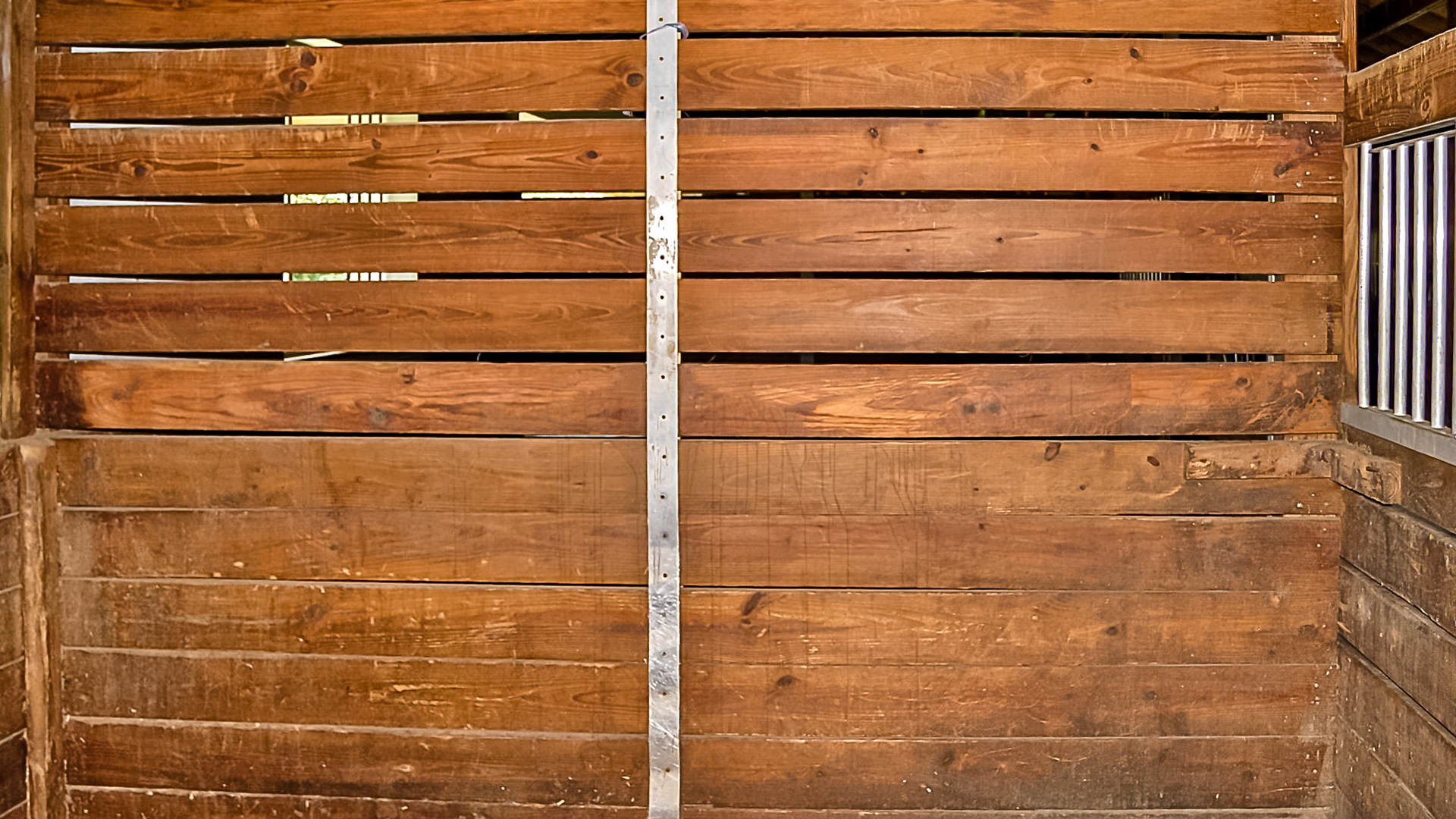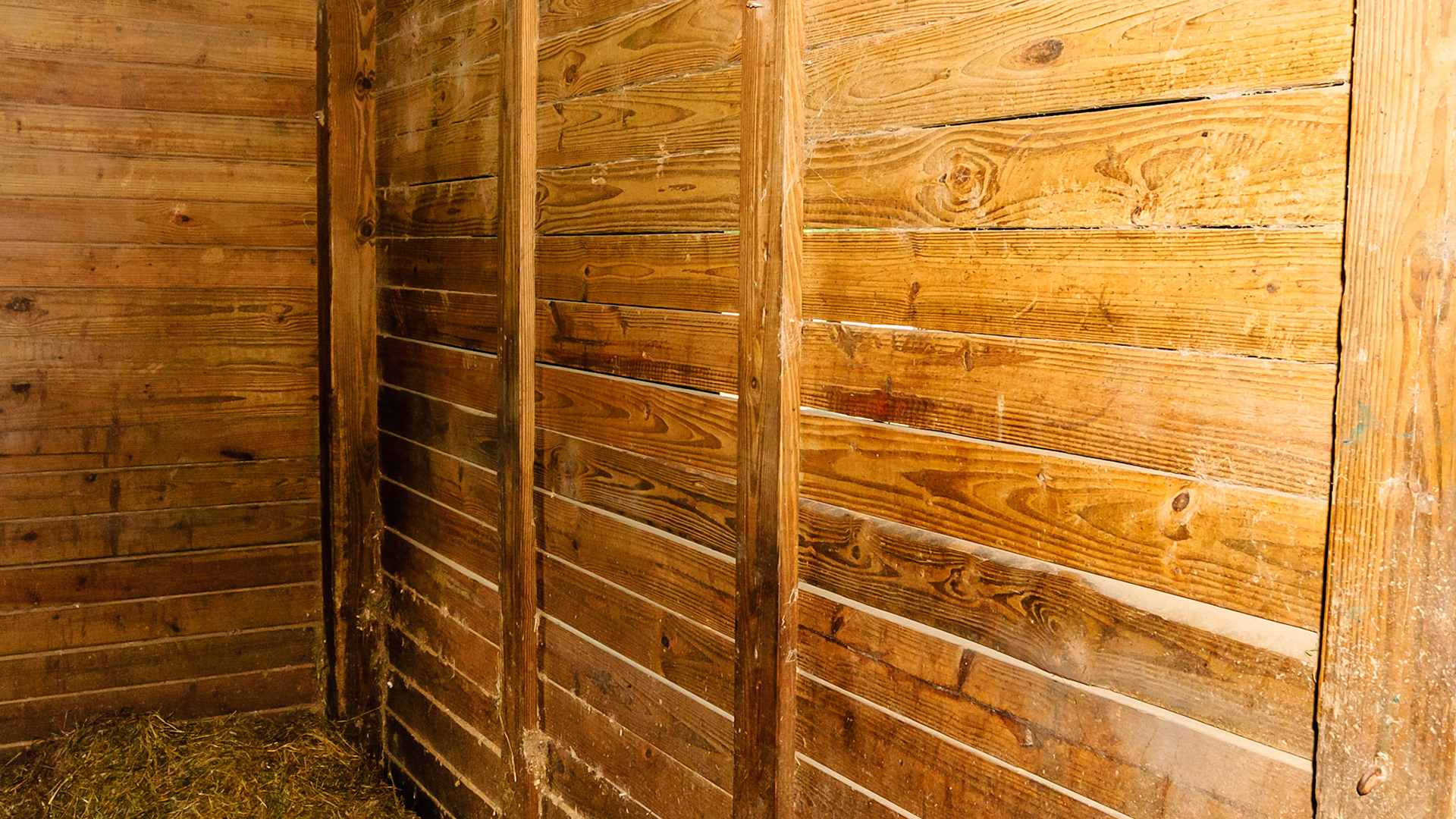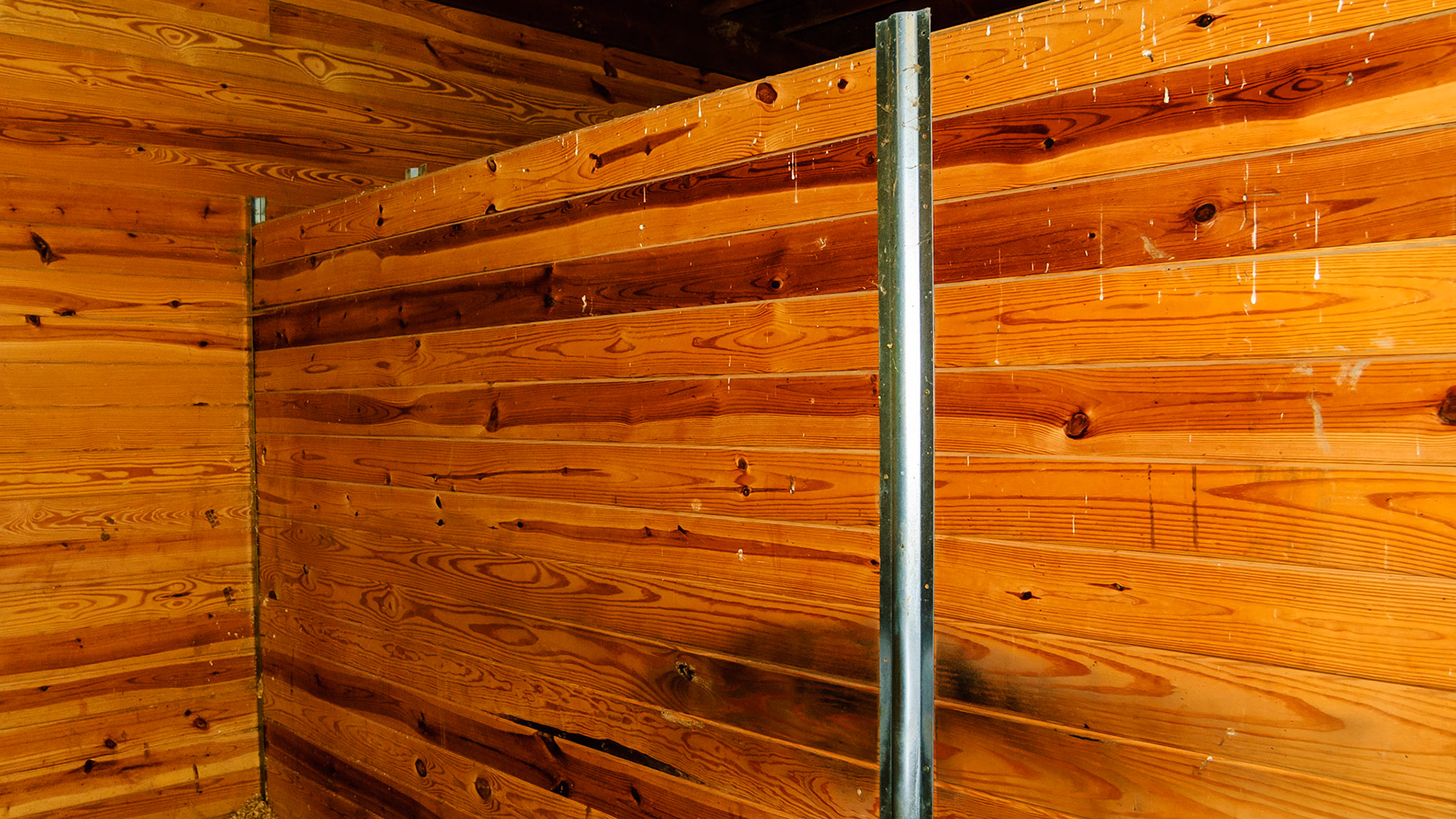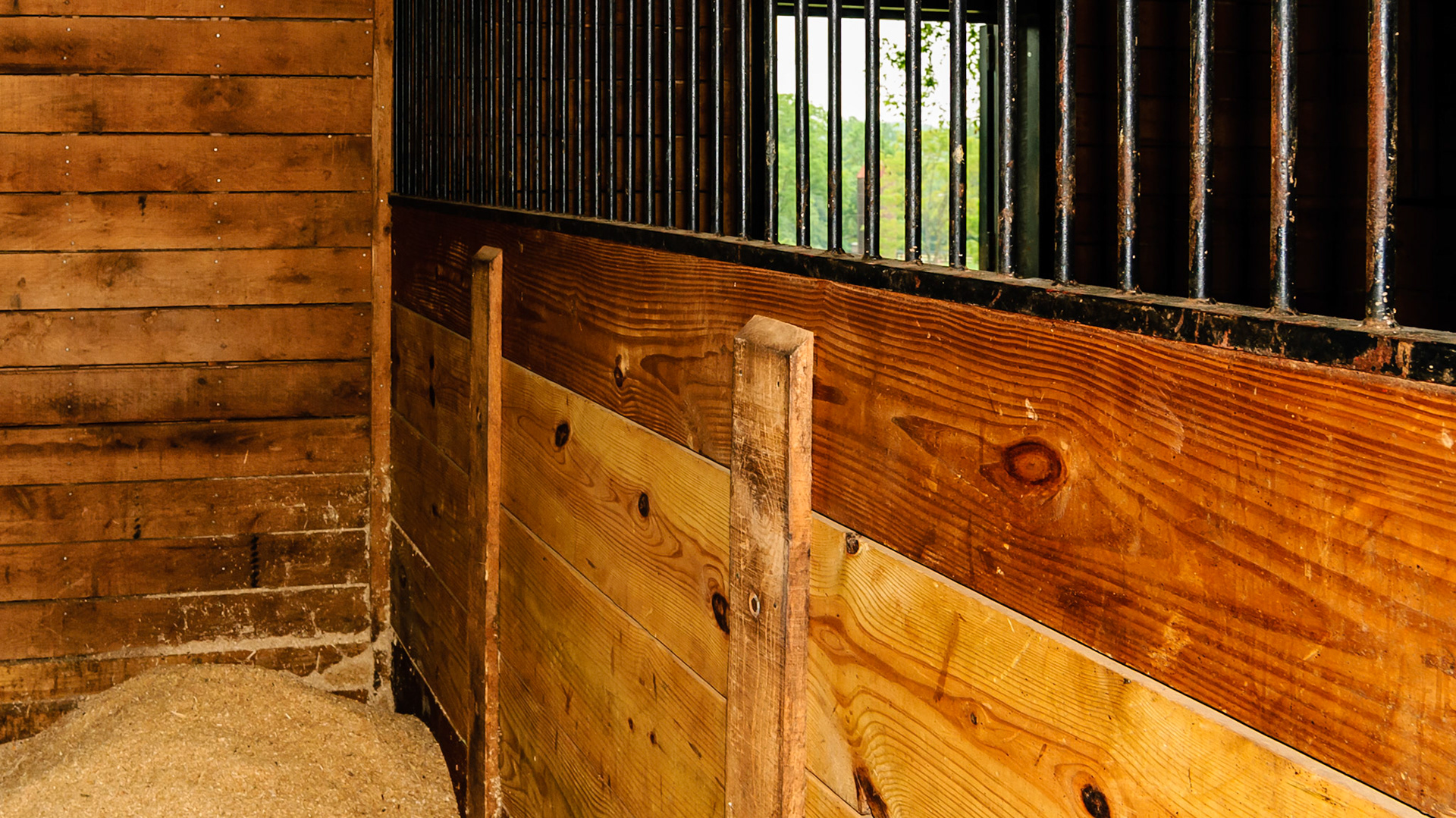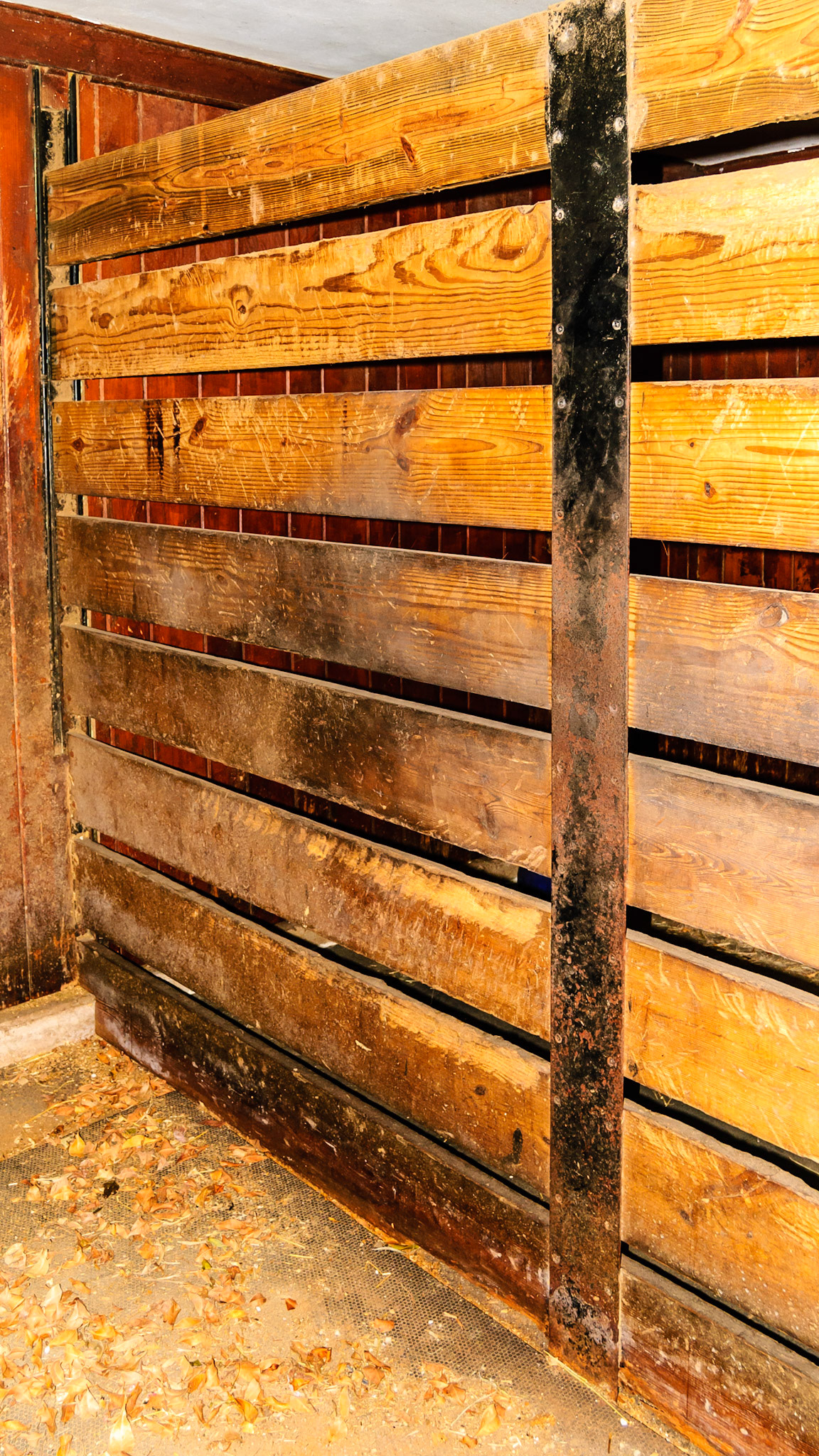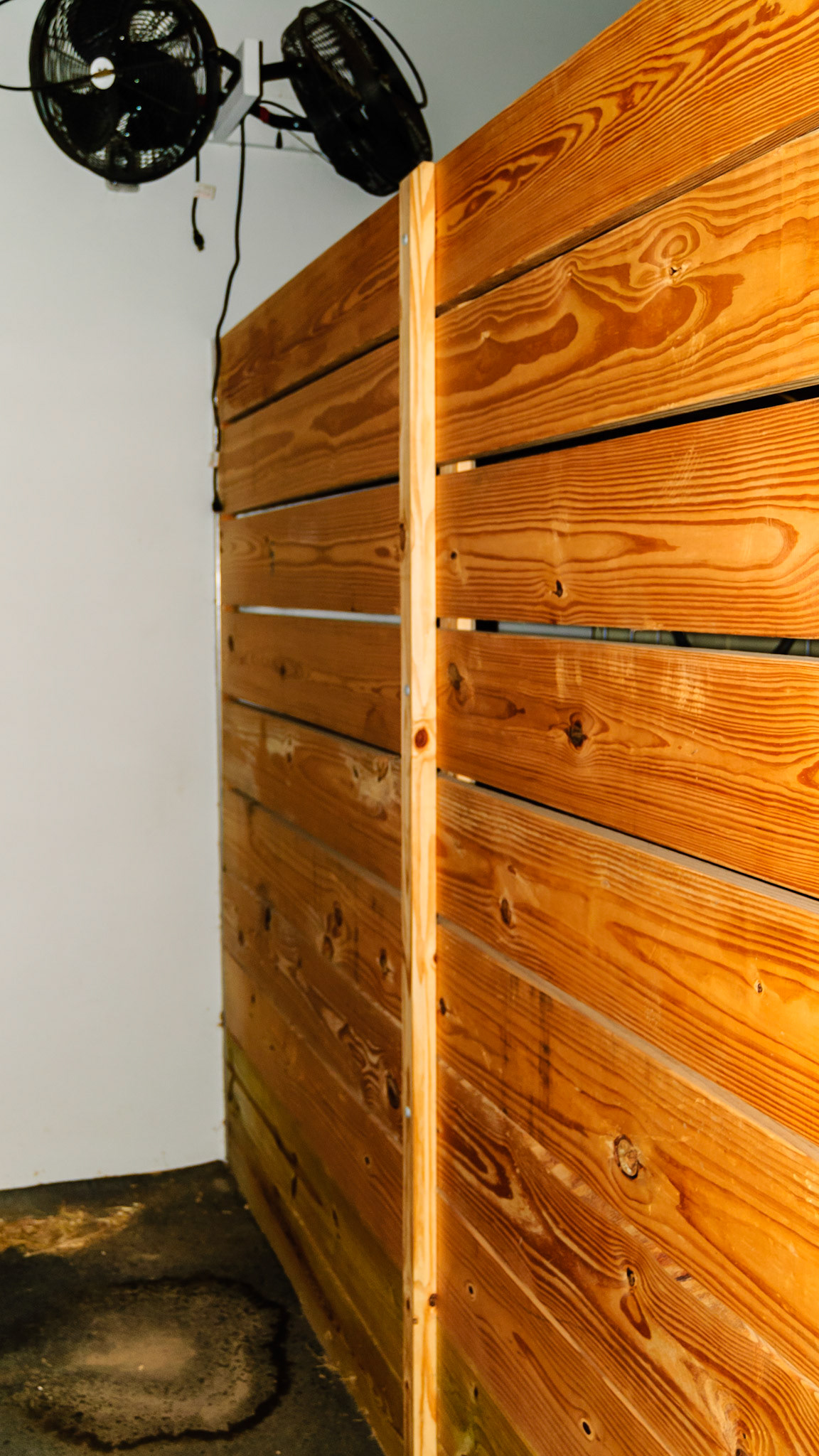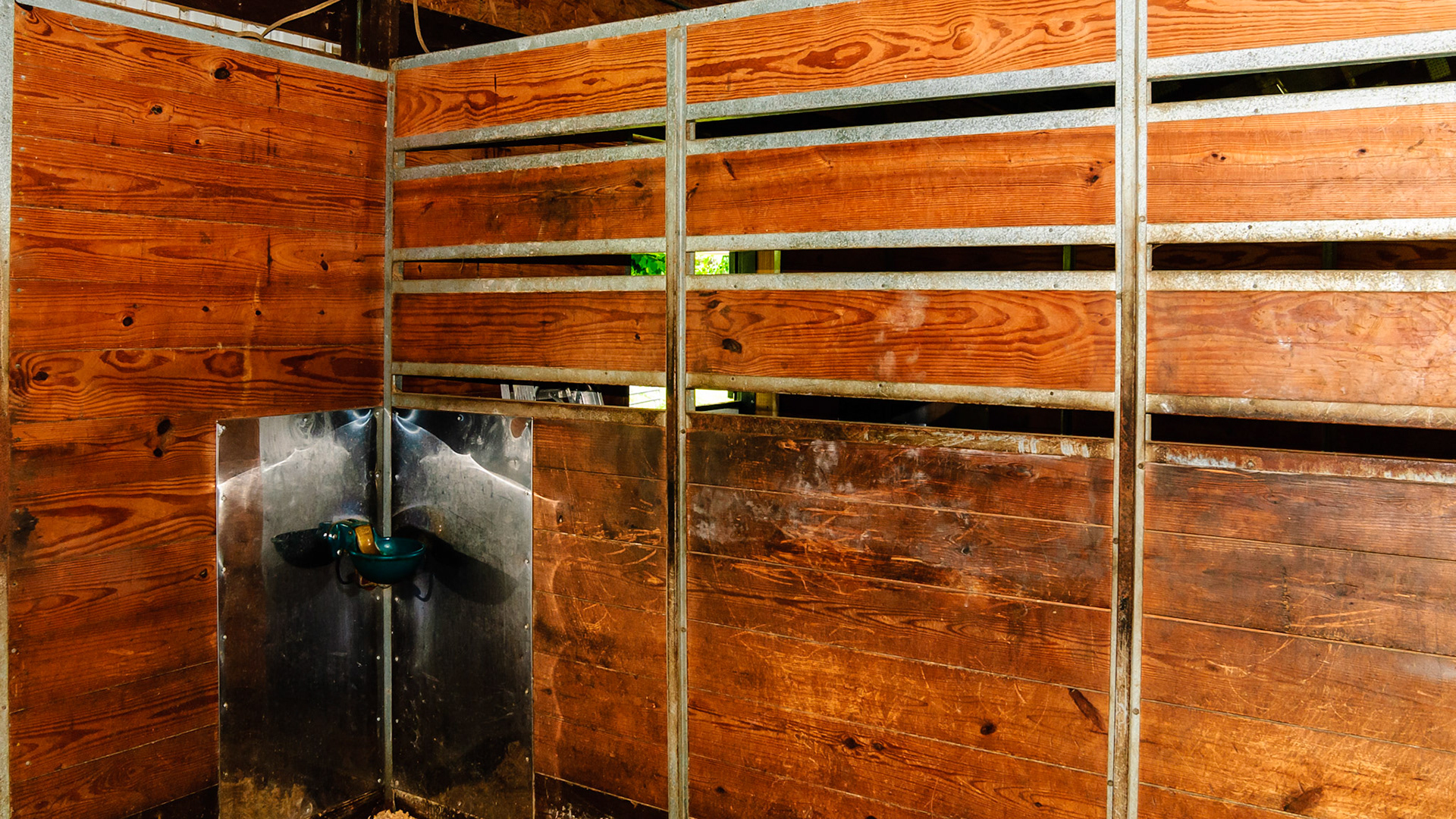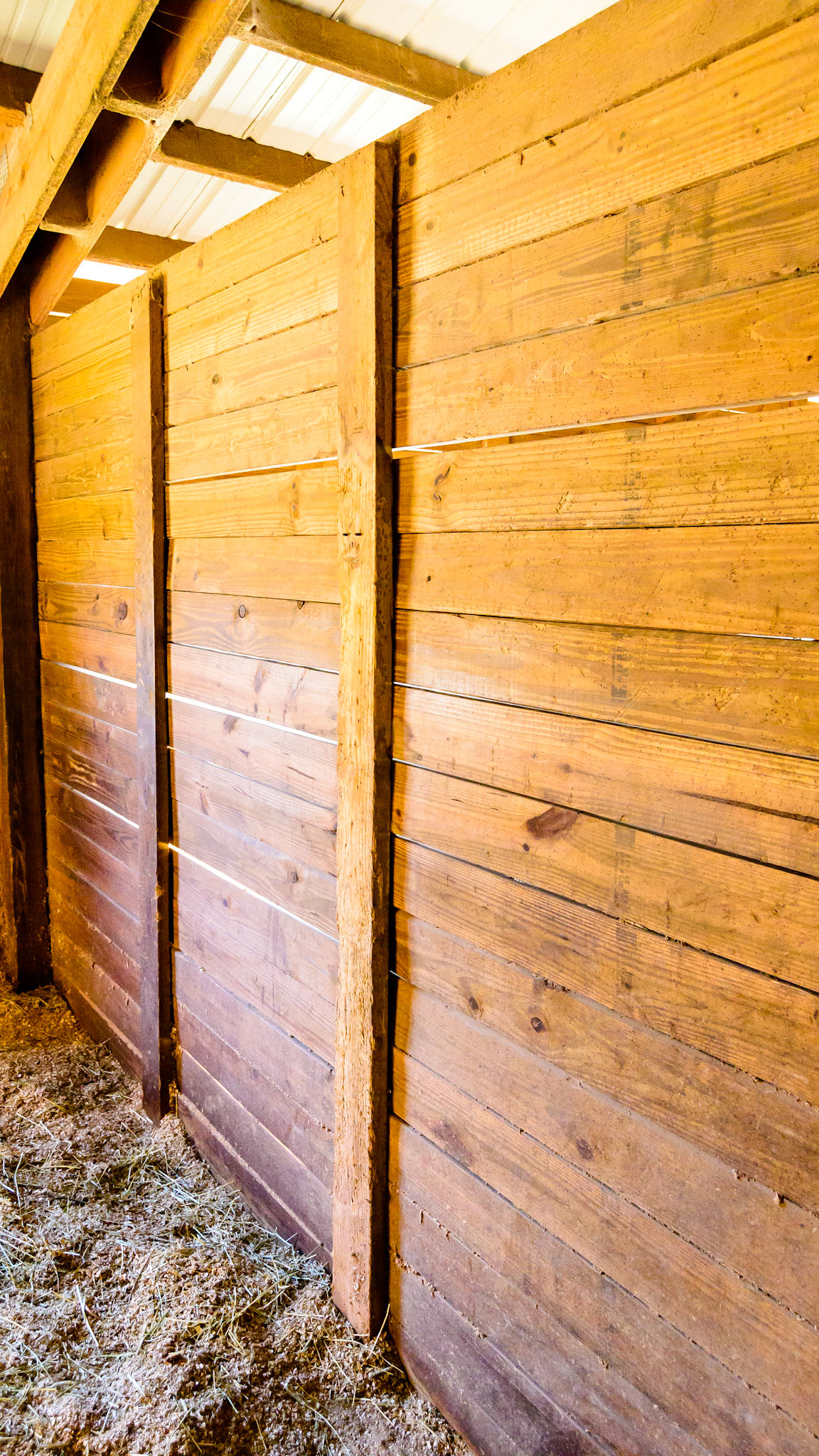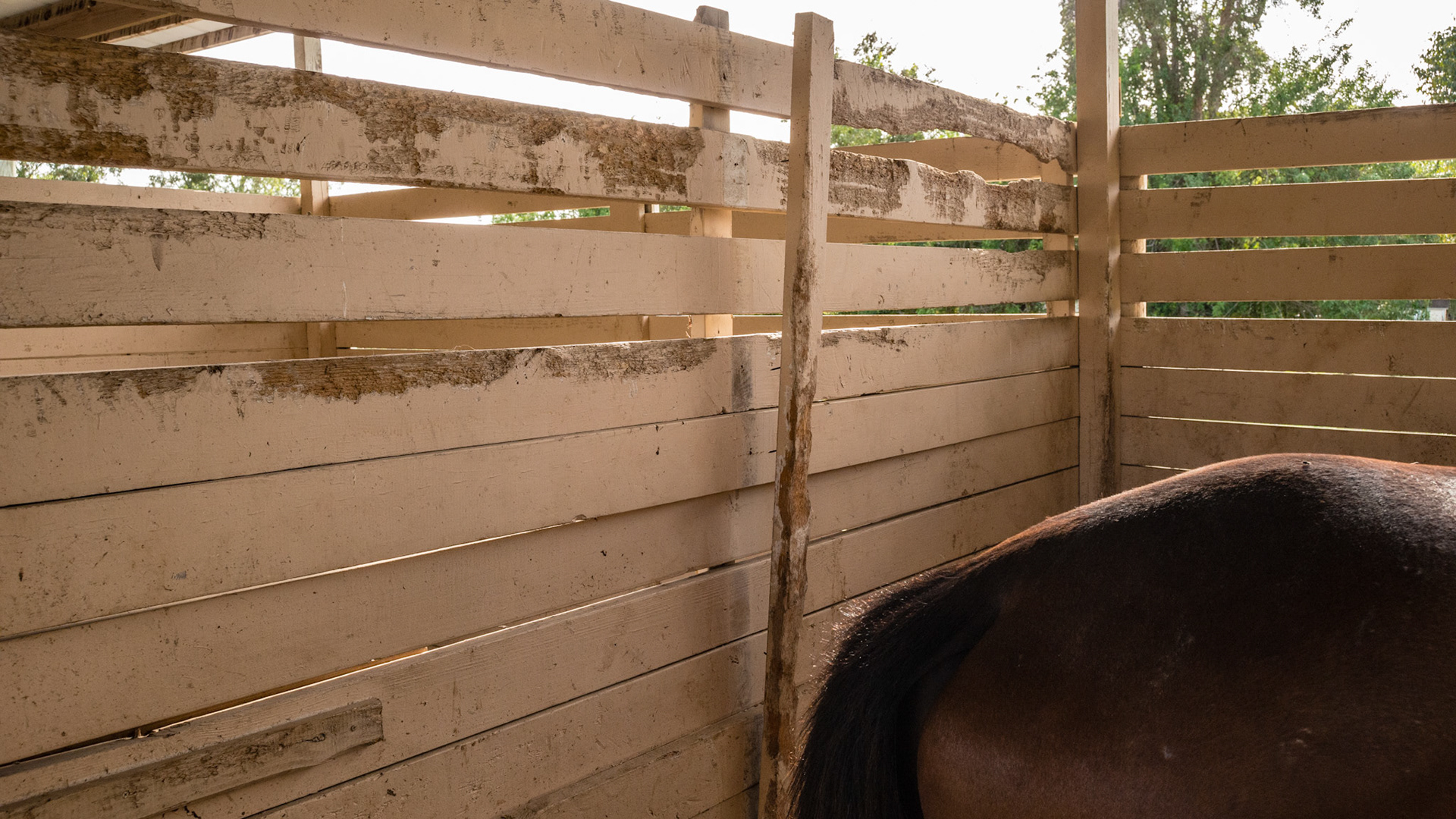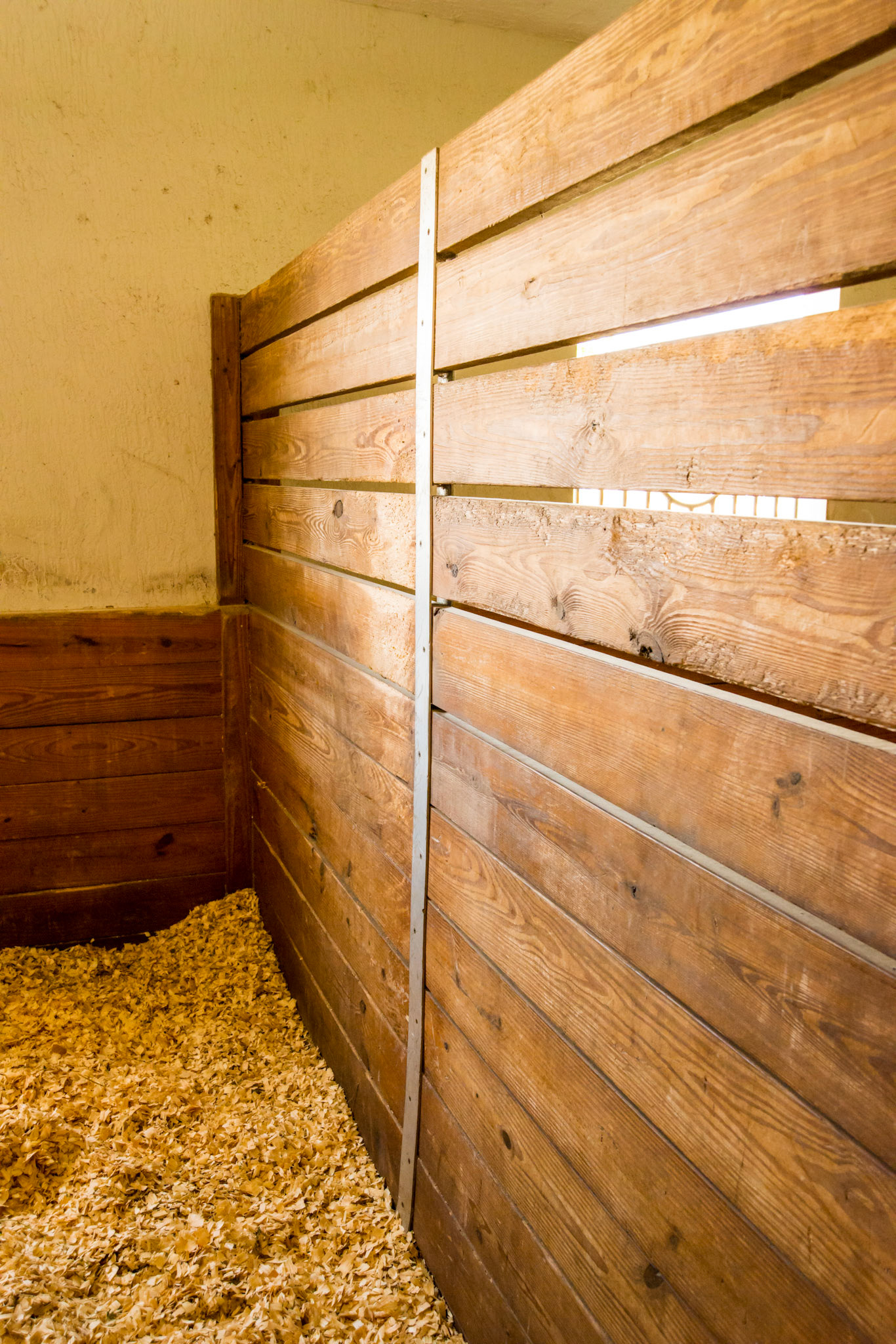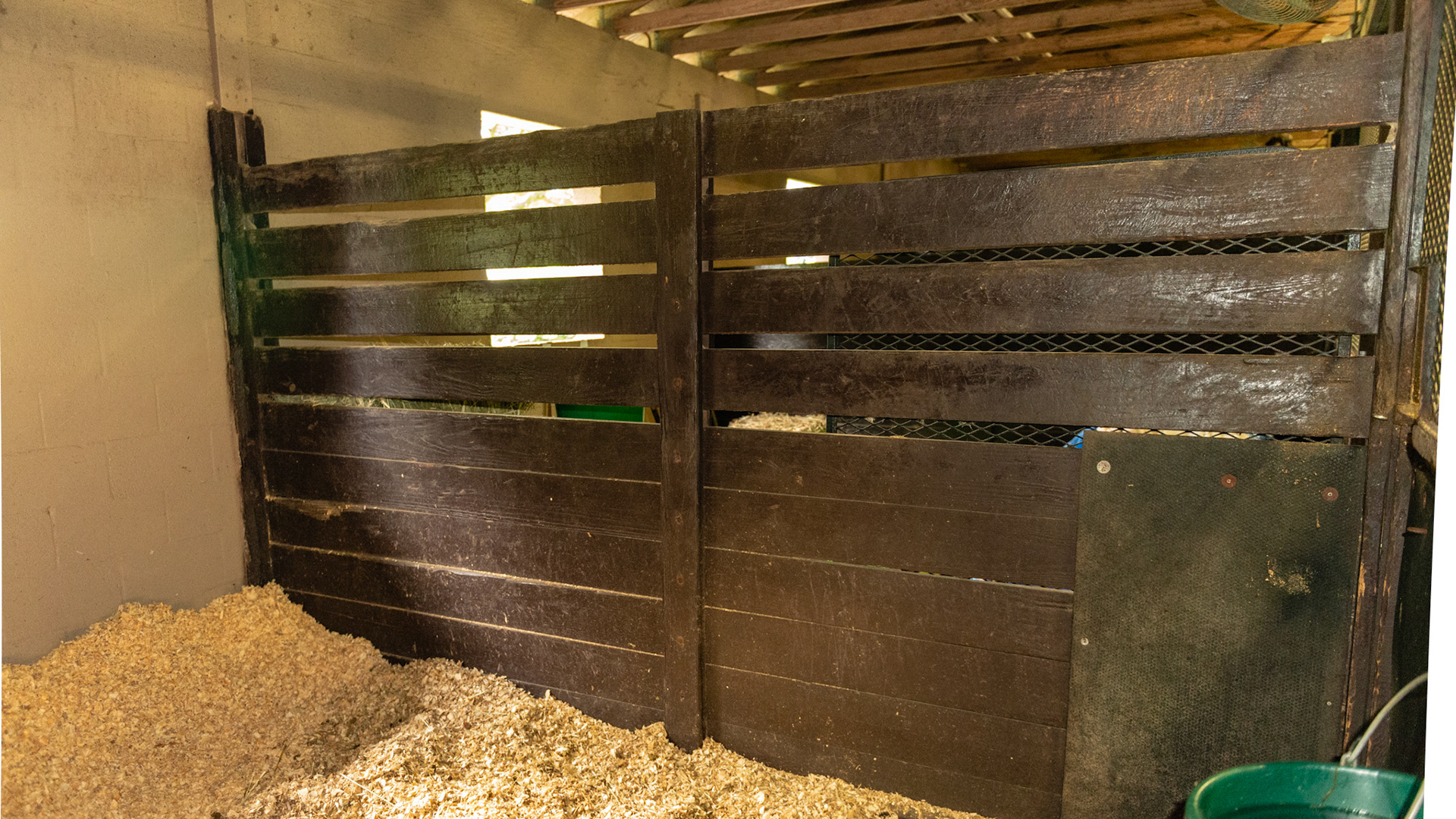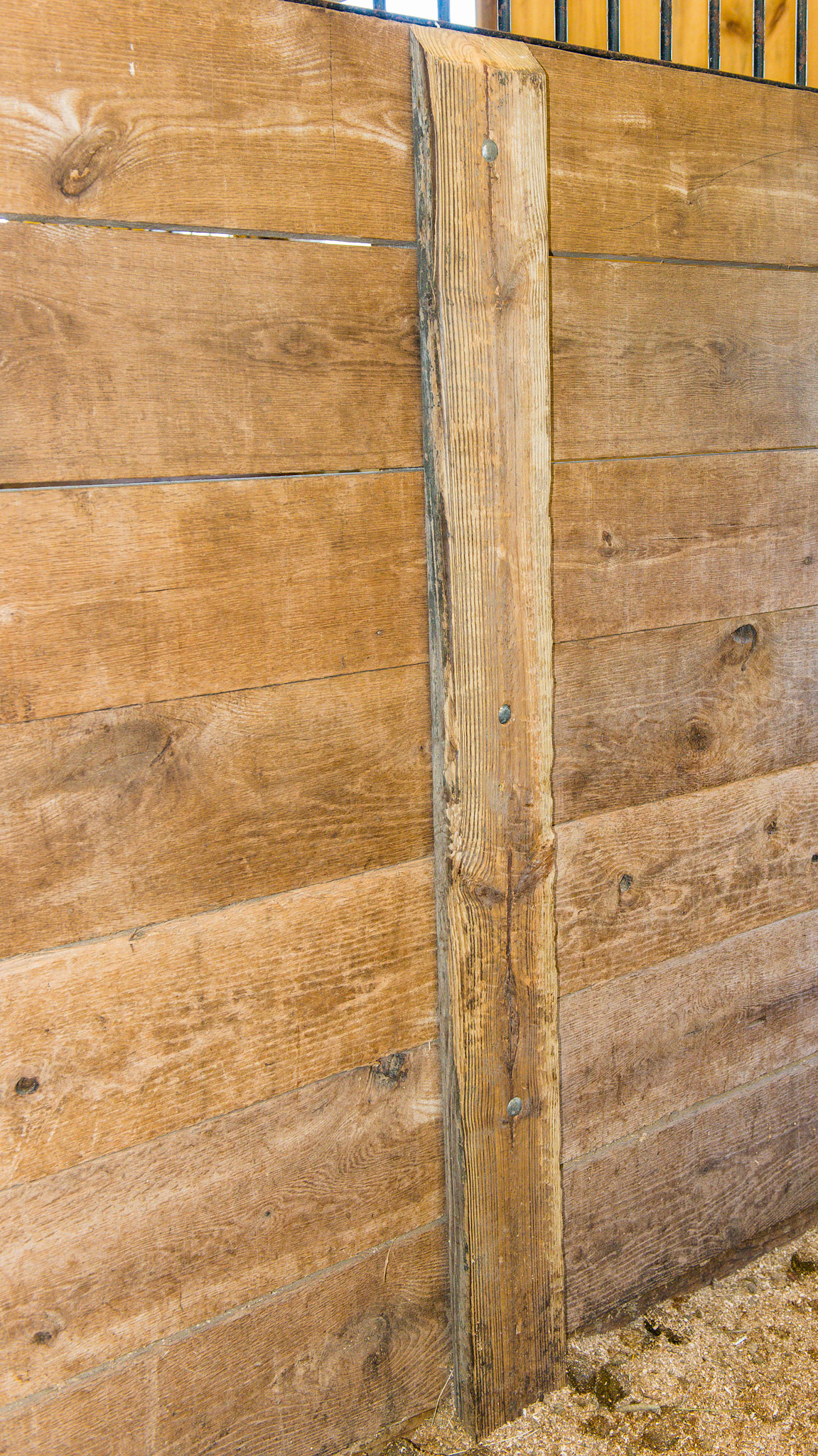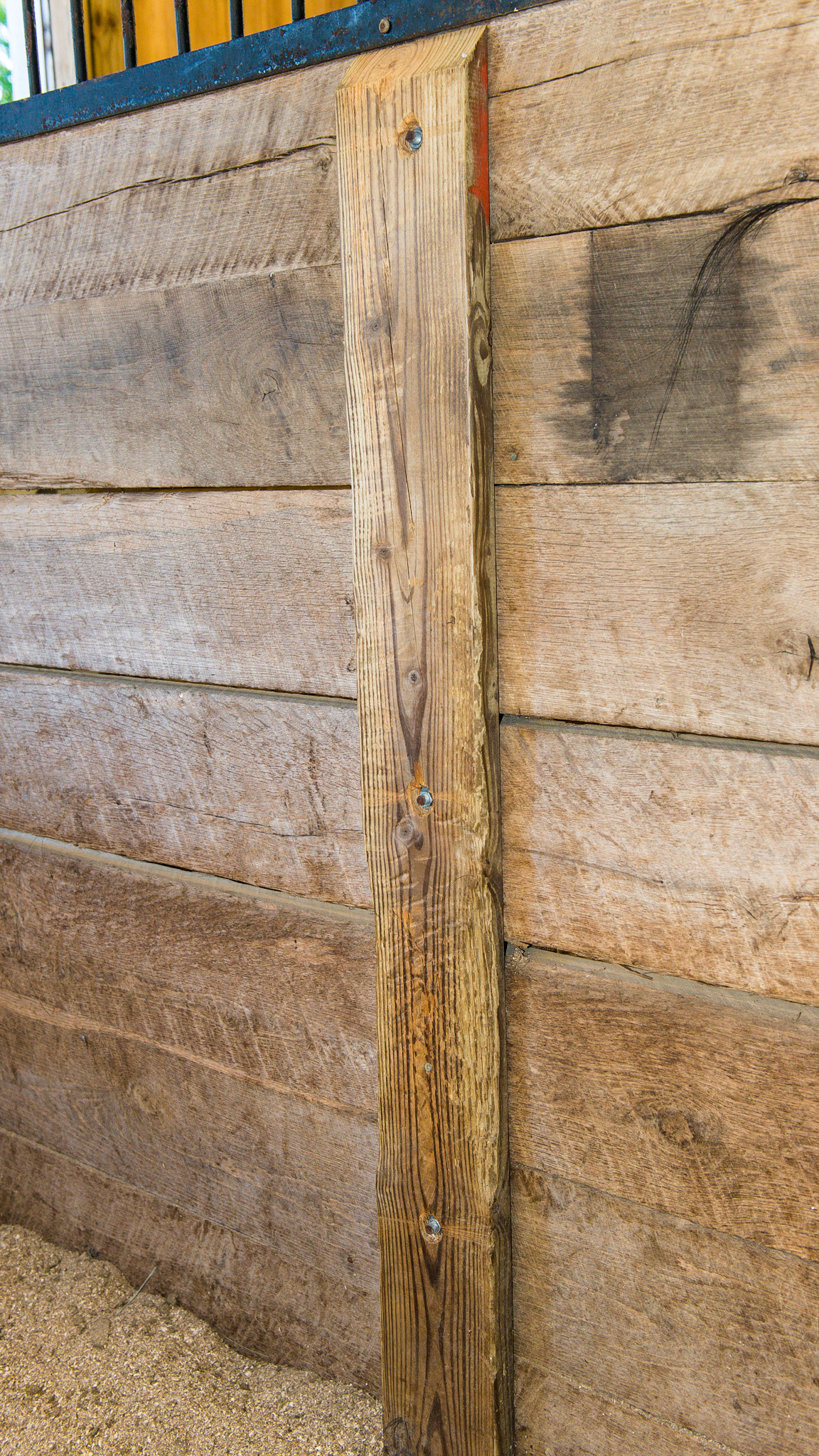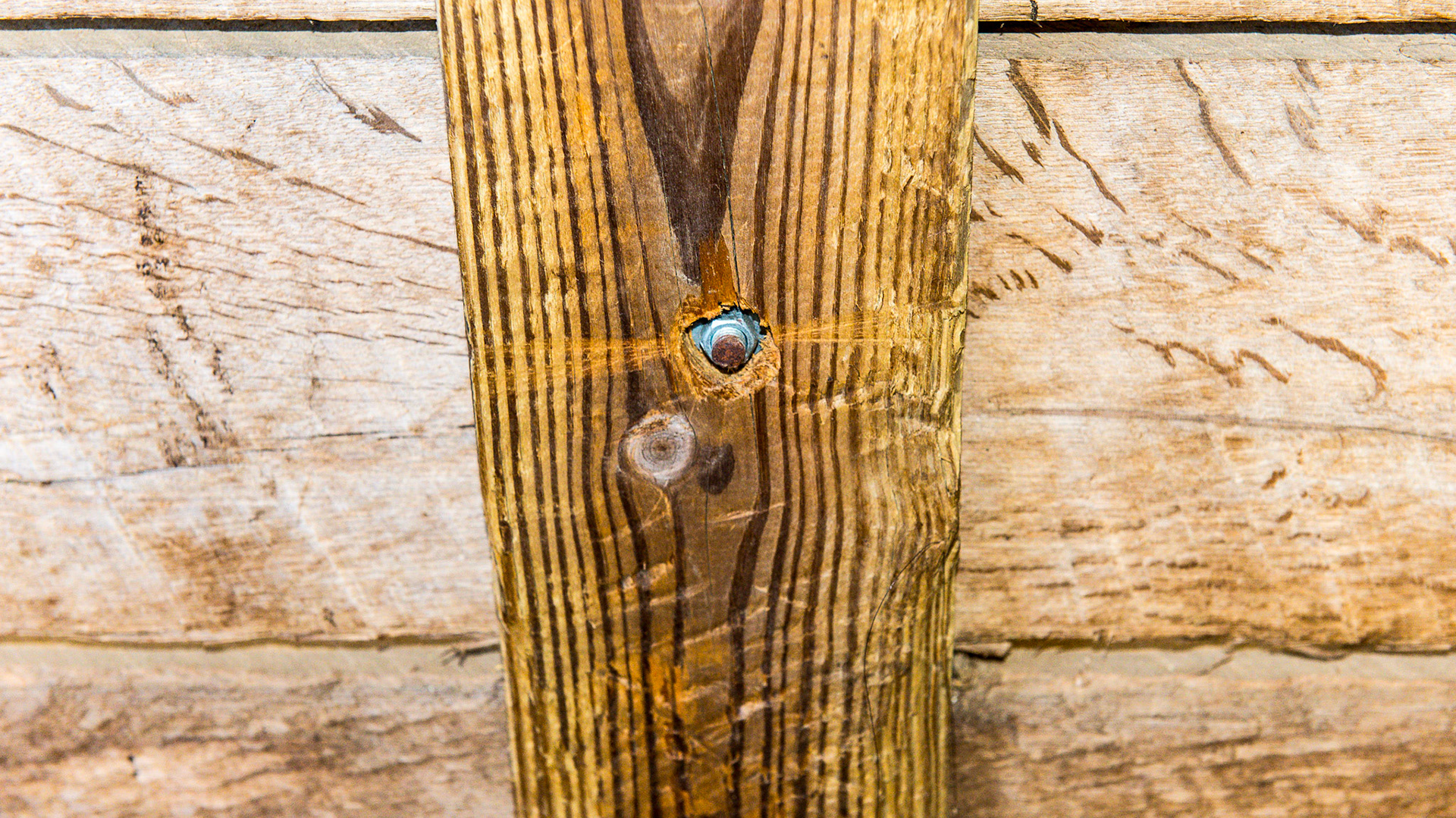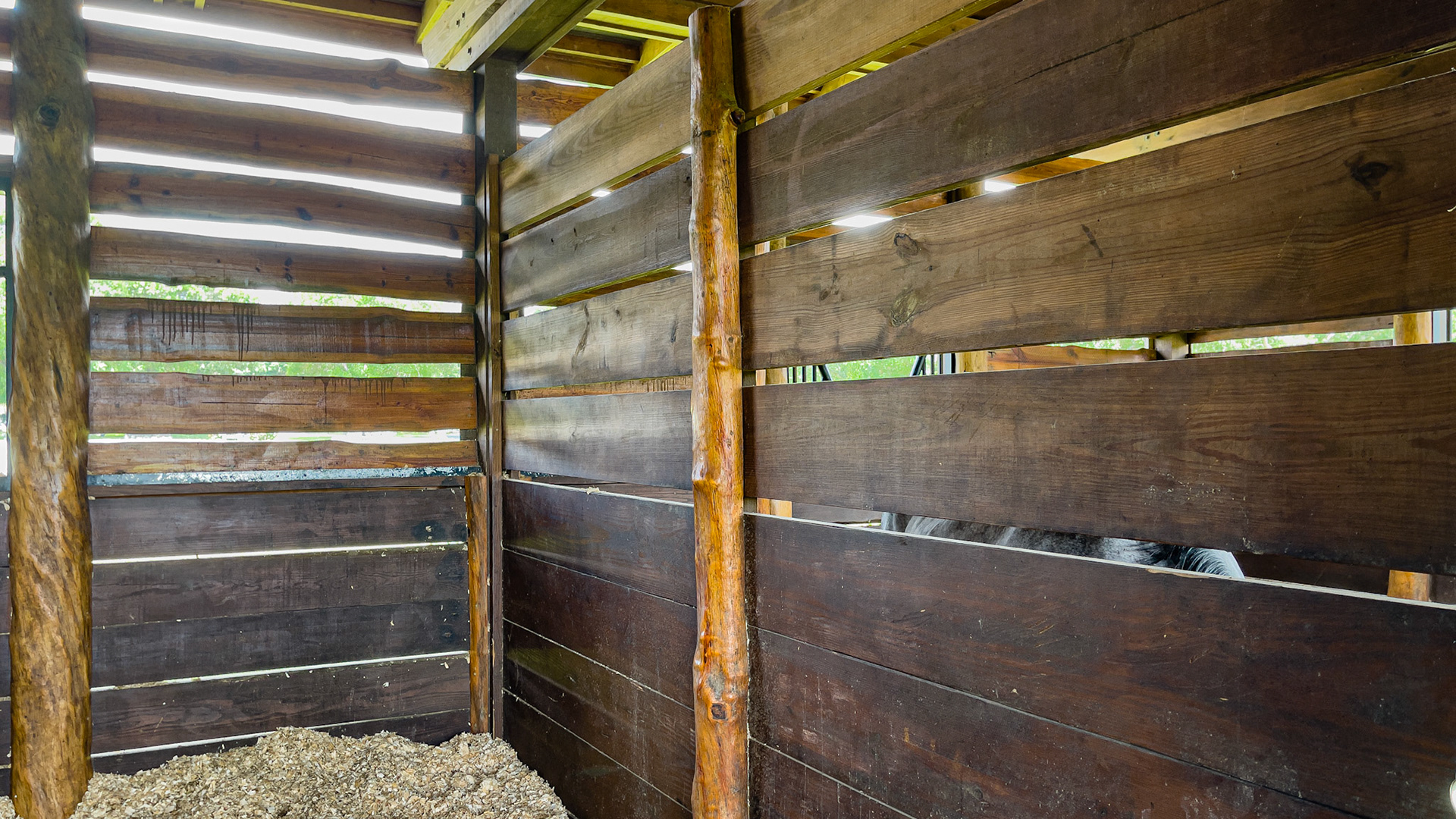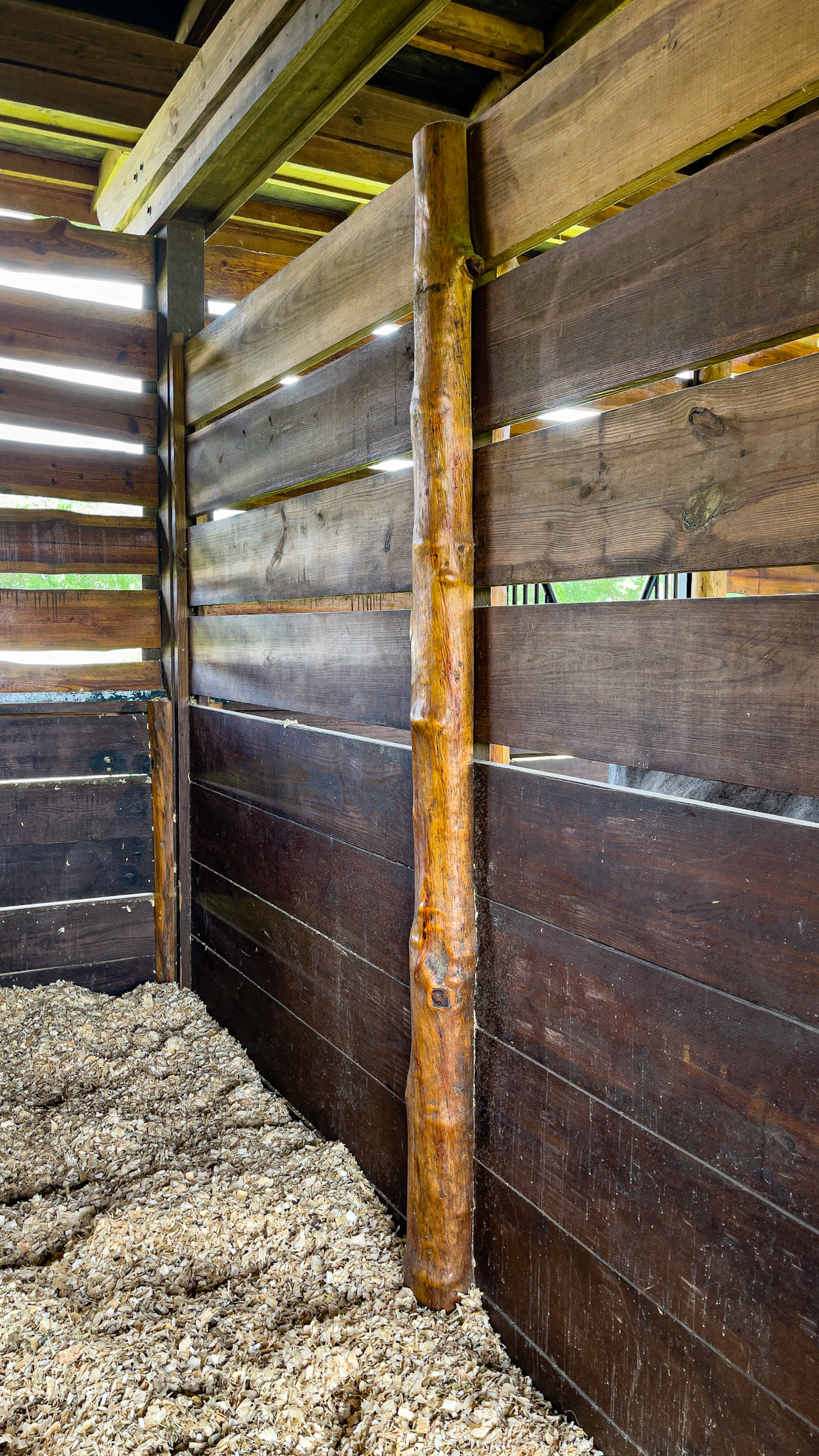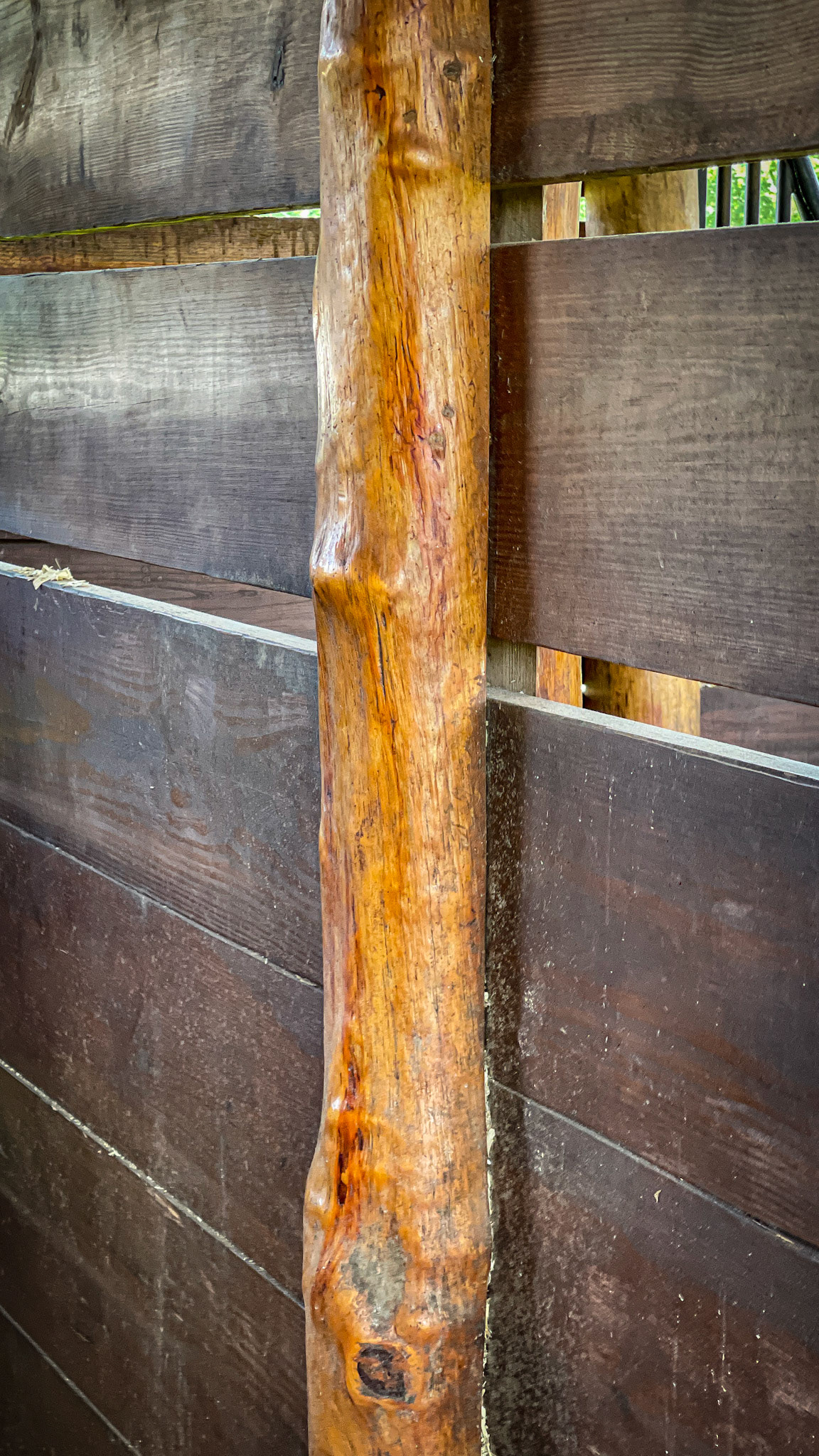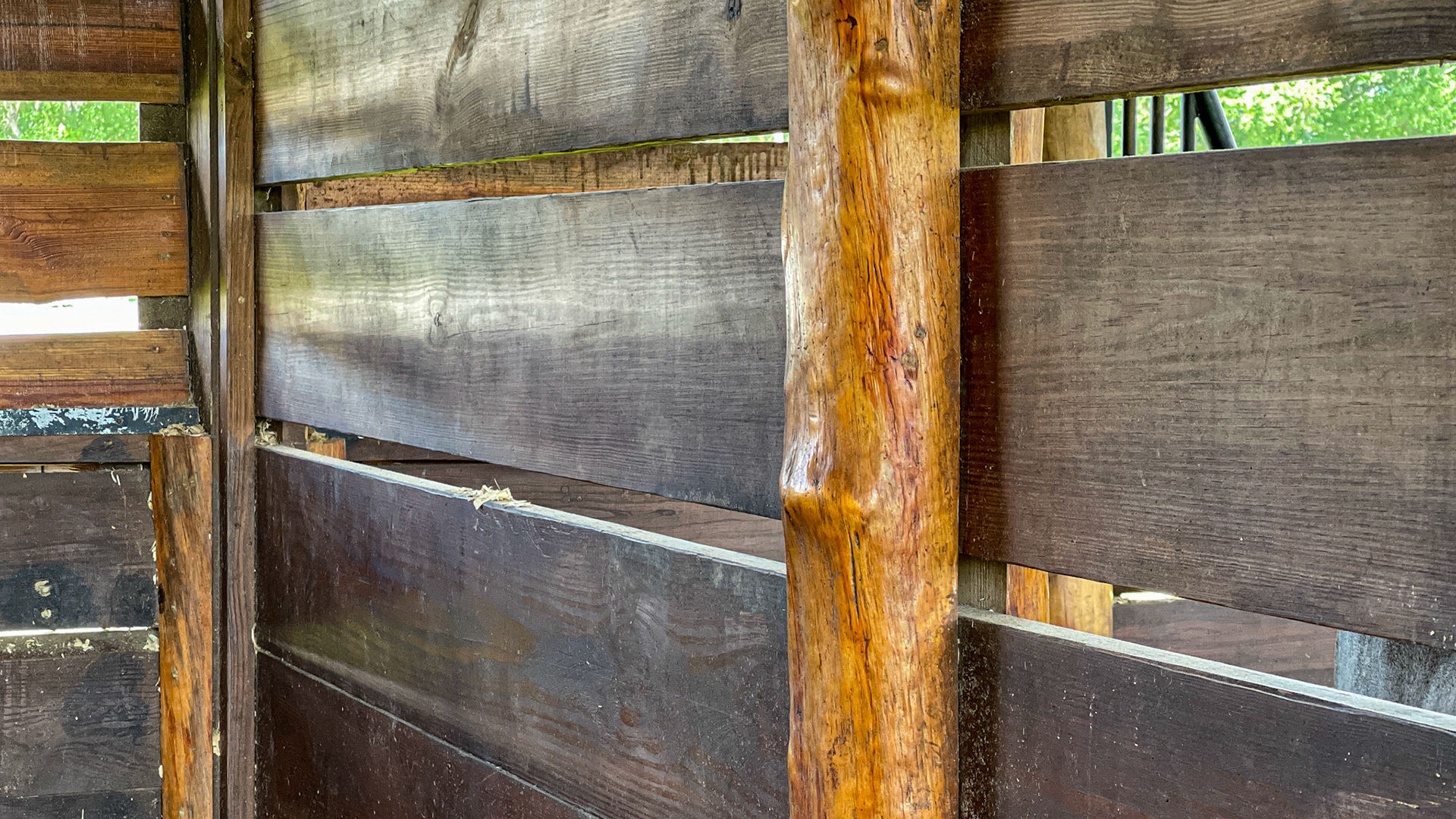
A metal strip with 2 screws per board is effective and safe. Note the openings on the top half between the boards for viewing and ventilation.

Double sandwich boards with ventilation slats.

A ribbed metal sandwich plate protects the horse from screw heads but has exposed sharp edges at the top. Raising the top board would have covered these edges.

Double sandwich boards, beveled top edge, recessed bolt heads and nuts.

Metal plate with recessed screw heads.

A simple 2x4 applied with stove bolts. Note the beveled edges, the ventilation slats and looking through the openings, the opposing board - hence the name sandwich boards.

Ribbed metal sandwich plates plus channel metal to protect the exposed board edges. These usually get rusted and chewed on. The sheet metal behind the water device prevents wood damage and makes easy cleaning of the area.

Boards only on one side using nails that are allowing some of the stall boards to back out. While effective in preventing bowing of the stall boards it is not a long lasting solution.

Sandwich board is sprung and not doing its job. This is the problem with using nails and not bolts or lag screws.

Sandwich metal plate on stall wall

Stall wall with a sandwich board and the upper boards separated for ventilation. Carriage bolt heads do not need recessing

This sandwich board system has good details. The top edge is beveled. Only 3 carriage bolts are used (good). The bolt heads are pressed into the wood.

This sandwich board system has good details. The top edge is beveled. Only 3 carriage bolts are used (good). The bolt shafts are cut level with the board and the nuts are counter-sunk into the wood making this end of the bolt safe against the horse.

Details of the bolt shaft cut level with the board and the nut and washer counter-sunk into the wood.
